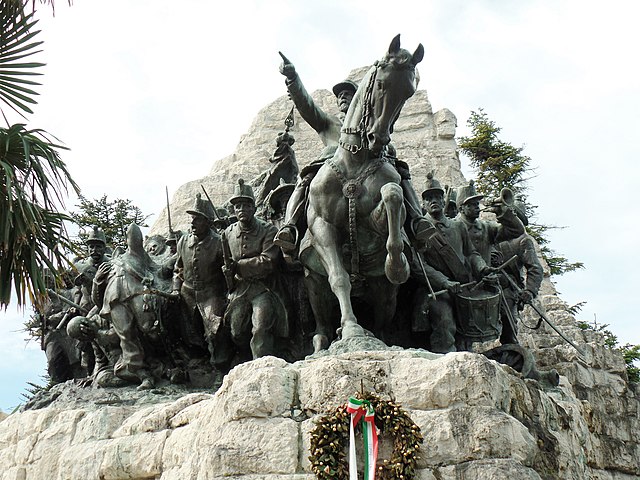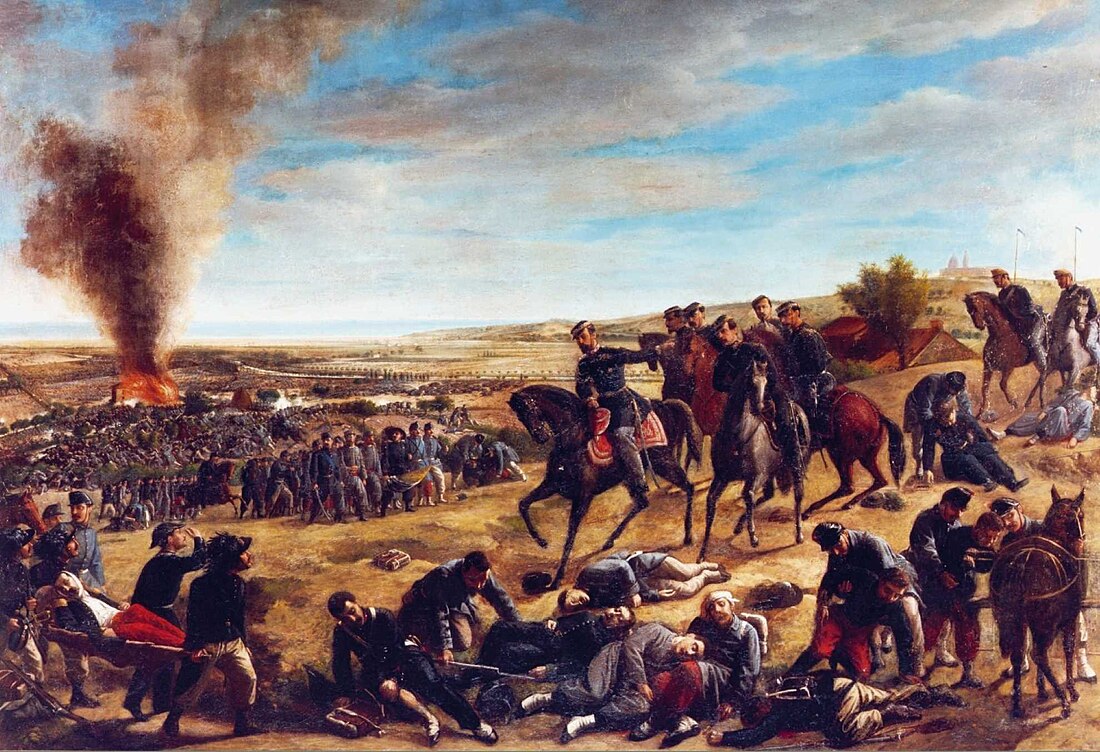Top Qs
Timeline
Chat
Perspective
Battle of Castelfidardo
1860 battle of the Risorgimento fought between the Piedmontese and Papal armies From Wikipedia, the free encyclopedia
Remove ads
The Battle of Castelfidardo took place on 18 September 1860 at Castelfidardo, a small town in the Marche region of Italy. It was fought between the Royal Sardinian Army – acting as the driving force in the war for Italian unification, against the Papal States.[2]
You can help expand this article with text translated from the corresponding article in Italian. (October 2023) Click [show] for important translation instructions.
|
Remove ads
Prologue
On 7 September, Camillo Benso, Count of Cavour, Prime Minister of Piedmont, sent an ultimatum to the Pope demanding that he dismiss his foreign troops. When he failed to do this, 35,000 troops crossed the border on 11 September, with General Enrico Cialdini advancing along the Adriatic coast and General Della Rocca leading another troop across Umbria. Papal troops were caught by surprise and thrown into confusion. Some of the Papal troops surrendered the same day and some retreated to Ancona which fell on 29 September 1860 after Siege of Ancona (1860) a short siege.[2]
Remove ads
Battle
Bloodshed and the wildly disproportionate army levels—less than 10,000 Papal soldiers against 39,000 Sardinian infantry—are what make the conflict memorable.[citation needed]
Papal Army
The Papal army was composed of volunteers from many European countries, amongst whom the French and Belgian nationals constituted a Franco-Belgian battalion. Among the French volunteers were a notable number of nobles from western France: after the battle, whilst consulting the list of dead and wounded members of the Papal army, the Sardinian general Cialdini is reported to have said, in an example of black humor, "you would think this was a list of invites for a ball given by Louis XIV!"[3]
The Franco-Belgian, Austrian and Irish battalions later joined the Papal Zouaves, an infantry regiment of international composition that pledged to aid Pope Pius IX in the protection of the Papacy for the remainder of the Italian unificationist Risorgimento.
Remove ads
Military and political results
As a result of this battle, the Marche and Umbria entered the Kingdom of Italy and the Papal States were reduced to the area of what is today known as Lazio.[2]
Commemoration

The battle was commemorated by the Italian ironclad Castelfidardo, built in the 1860s and the 26th Bersaglieri Battalion "Castelfidardo".
References
External links
Wikiwand - on
Seamless Wikipedia browsing. On steroids.
Remove ads

